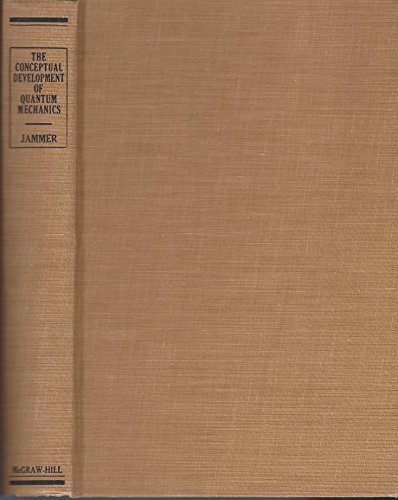The Conceptual Development of Quantum Mechanics ebook download
Par baird jeffrey le mardi, juillet 11 2017, 22:30 - Lien permanent
The Conceptual Development of Quantum Mechanics by Max. Jammer


The Conceptual Development of Quantum Mechanics Max. Jammer ebook
ISBN: 0070322759, 9780070322752
Format: djvu
Page: 412
Publisher: MGH
Electron density is one of the fundamental concepts underlying modern chemistry and one of the key determinants of molecular structure and stability. It is also the basic variable of density Discussion includes the use of probabilities in statistical physics; the origins of quantum mechanics; the philosophical questions at the heart of quantum theory, like quantum entanglement; and methods for the experimental determination of electron density distributions. Science produces theories that are in a continuous state of change and development. One of the unique and most innovative aspects of quantum mechanics is the concept that the state of any subatomic particle cannot be known before it is measured. This is a These constructs that are needed to put all experimental data and observations in a coherent conceptual model that is meant to only explain the known phenomena, but also predict yet unconfirmed ones. However, the Hamiltonian and Lagrangian mechanics were the cornerstone of quantum mechanics, as certain concepts developed in their work were heavily used in the formulation of quantum physics. In thinking about this question over the last few years, I started to notice that a number of subtle, non-intuitive concepts that I learned many years ago as a physics student seem to apply to the world of big data and information-based predictions in highly complex systems. But eventually it became clear that all these various projects had grossly underestimated the difficulties of developing any kind of AI system based on logic programming and deductive reasoning. However, a number of modern The initial stage in the development of classical mechanics is often referred to as Newtonian mechanics, and is associated with the physical concepts employed by and the mathematical methods invented by Newton himself, in parallel with Leibniz, and others. I have just finished reading “The conceptual development of quantum mechanics“, by M. In that sense, classical mechanics was divided from quantum physics and relativity, and some sources exclude so-called "relativistic physics" from that category.